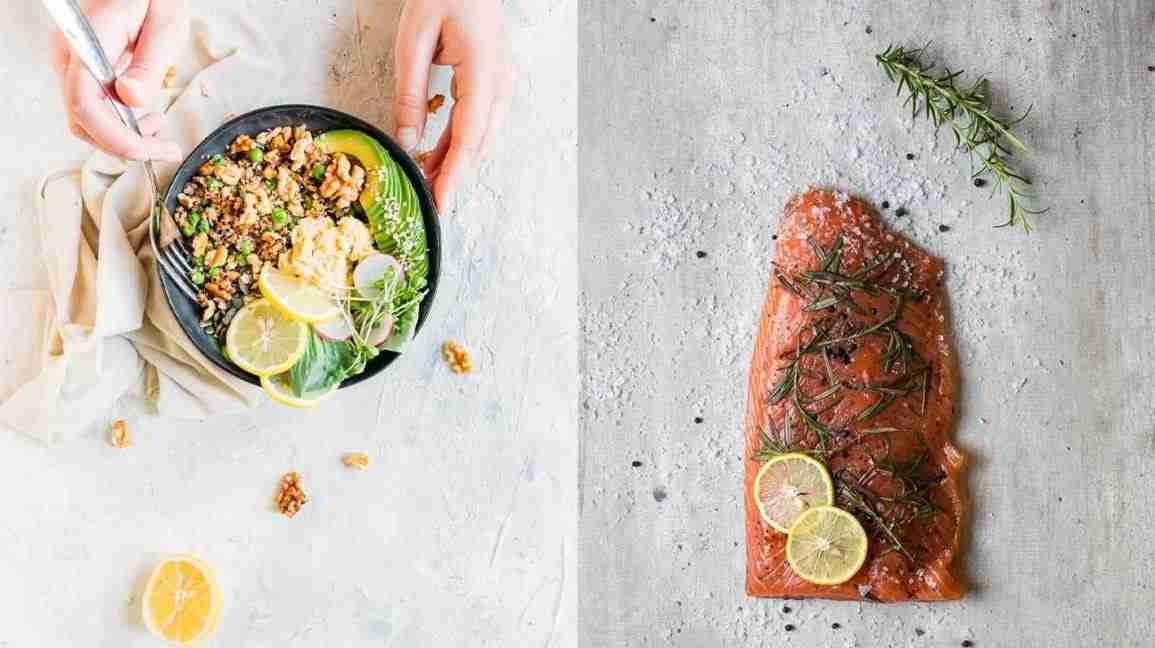When Jane Green was 14 years old, she was walking offstage from a tap dance competition when she collapsed.
She couldn’t feel her arms, her legs, or her feet. She was hysterically crying, and her whole body was hot. She was gasping for breath. She blacked out for 10 minutes and when she came to, her mom was holding her. It took 30 minutes for her heart rate to calm down enough so she could breathe.
Green was having a panic attack — her first one, but not her last. Her parents took her to the doctor, who diagnosed her with anxiety and depression, and handed her a prescription for an antidepressant.
“I’ve had good times, but I’ve also had really low points. Sometimes it got to the point where I didn’t want to live anymore,” Green shares with Healthcare Website. More doctors’ visits also revealed she had an irregular thyroid, which didn’t help with Jane’s anxiety. She started seeing a therapist at 20, which helped — but only so much.
At 23, after a particularly hard visit with her doctor who told her there was nothing that could be done about her symptoms, Jane had a meltdown in front of her friend Autumn Bates.
Bates was a nutritionist who had overcome her own anxiety issues by changing her diet. She convinced Jane to switch up her diet to see if it made her feel any better.
Green already ate a fairly healthy diet, but dinner was often unhealthy takeout. Sugar was a daily must-have, with candy throughout the day and ice cream at night.
Bates gave Green some new guidelines: no grains, no dairy, less sugar, more healthy fats, medium amounts of protein, and most importantly, lots of vegetables.
Green started drinking bulletproof coffee in the morning, reached for nuts as a snack, stuck to salmon or homemade burgers with veggies for dinner, and savored the small piece of dark chocolate she allowed for dessert.
“For the first three days, I thought I was going to die,” Green says about the switch.
But after a few days, she started noticing her energy level soaring.
“I wasn’t focusing on what I couldn’t eat — I was focusing on how great I felt physically, which made me feel better mentally and emotionally,” she adds. “I stopped getting the crazy highs and lows from sugar. I actually have bowel movements now, which makes such an impact on my mood.”
As for those anxiety attacks? “I haven’t had an anxiety attack in months,” Green says. “I’m completely off my antidepressants, which I 100 percent attribute to my diet and lifestyle changes.”
The foods that help and hurt your mental health
“Changing your nutrition can be a great addition to traditional therapy, like CBT and medication, [but it] comes at a much smaller cost and can be a great way to self-care,” says Anika Knüppel, researcher and PhD student at University College London and contributor to the European MooDFOOD program, which focuses on preventing depression through food.
There are two ways nutritional interventions can help mental health: by increasing healthy habits and reducing unhealthy ones. For the best outcome, you have to do both, says Knüppel.
Research has shown the most support for two diets: the Mediterranean diet, which emphasizes more healthy fats, and the DASH diet, which focuses on reducing sugar.
Try It: Mediterranean Diet
- Get your starch fix with whole grains and legumes.
- Fill up on plenty of fruits and veggies.
- Focus on eating fatty fish, like salmon or albacore tuna, in place of red meat.
- Add in healthy fats, like raw nuts and olive oil.
- Enjoy sweets and wine in moderation.
The Mediterranean diet is more about what you’re adding in — fresh fruits and vegetables, protein-rich legumes, and fatty fish and olive oil (high in omega-3s).
One study looked at 166 people who were clinically depressed, some being treated with medication. The researchers found that after 12 weeks of eating a modified Mediterranean diet, the participants’ symptoms were significantly better.
An earlier
Try It: DASH Diet
- Embrace whole grains, vegetables, and fruit.
- Get protein from chicken, fish, and nuts.
- Switch to low-fat or nonfat dairy.
- Limit sweets, sugary drinks, saturated fats, and alcohol.
Alternatively, the DASH diet is about what you’re taking out, namely sugar.
A
And new research from Rush University Medical Center (which will be presented at the American Academy of Neurology’s annual meeting) reports that among older adults, those who followed the DASH diet closely were less likely to develop depression over six-and-a-half years compared to those who followed a Western diet.
Going sugar-free to fight depression and anxiety
Simply removing sugar has been life-changing for Catherine Hayes, a 39-year-old Australian mom who was in and out of mental health counseling offices, and on and off antidepressants for the better part of her life.
“My moods would be up and down — mostly down. I had feelings of not being good enough, and some days I wanted to die. Then there was the anxiety to the point I couldn’t leave my house without becoming violently ill,” Hayes explains.
It wasn’t until she realized how much it was affecting her family and that she wanted to get better for her kids that she started looking at alternative therapies. Hayes started doing yoga and found the book “I Quit Sugar.”
At the time, Hayes was eating packets of cookies with coffee in the afternoon and craving dessert before she even ate dinner.
“My new way of eating consisted of lots of greens and salads, healthy fats, protein from meat, switching sweet dressings for olive oil and lemon juice, and limiting fruits to those with low fructose like blueberries and raspberries,” she says.
Giving up sweets wasn’t easy. “In that first month of coming off sugar, I was tired with headaches and flu-like symptoms.”
But at the one-month mark, everything changed. “My energy levels picked up. I was finally sleeping. My moods weren’t as low. I was happier, and the anxiety and depression just didn’t seem to be there,” Hayes says.
Now, two-and-a-half years after going sugar-free, she’s been able to wean herself off her antidepressants. “It’s not for everyone, but this is what worked for me,” she says.
If you’re considering stopping your antidepressants, work with your doctor to create a tapering schedule. You should never stop antidepressant medications on your own.
The connection between food and mental health
Since we don’t have all the answers, biologically, behind anxiety and depression, there’s no clear reason why changing your diet can change your mood, Knüppel says.
But we do know a few things: “Vitamins in the body help the function of enzymes that enable reactions such as the synthesis of serotonin, which plays an essential role in our happiness,” she explains.
Meanwhile, too much sugar has been
There’s also emerging
“The microorganisms in our gut can communicate with the brain and several systems that could play a role in depression and anxiety, and the composition of the gut microbiota is influenced by nutrition,” Knüppel adds.
Michael Thase, MD, psychiatrist and director of the Mood and Anxiety Program at the University of Pennsylvania, says there are a few other factors at play here.
“When you treat depression with medication, the actual ‘magical’ chemical ingredients matter maybe 15 percent. It’s really the process of working with a doctor and finding the motivation to recognize the problem and take steps toward fixing it that counts for most of the good,” Thase says.
“You can get that much of the good in a non-medication intervention that includes diet, exercise, and talking to someone,” he believes.
It’s really when you start taking care of yourself — which taking control of your diet certainly counts as — you get remoralization, Thase adds. “Your spirits pick up and that’s an antidepressant.”
Knüppel agrees: “Diet is a great way of active self-care and self-love — a key in cognitive behavioral therapy (CBT), which is often used to treat anxiety and depression. I believe seeing oneself as worthy of self-care and therefore worthy of being fed with nutritious food is a great step.”
Why certain foods are mood-boosting
- Some enzymes found in food boost serotonin levels.
- Sugar is associated with depression and anxiety.
- Emerging science shows gut health plays a role in anxiety.
- Eating healthy foods is a great way to practice self-care, important in CBT.
- Taking active steps to eat a nutritious diet can increase motivation.
Should you try it?
No treatment is perfect and no treatment works for everyone, Thase states. Both experts agree if you have depression or anxiety, your first step should be getting help from a mental health professional.
But trying out nutritional changes in parallel with whatever steps you and your doctor decide may potentially bolster the improvements.
Still, Thase says diet isn’t a silver bullet for anxiety and depression.
“I’m all in favor of helping people take a look at their fitness and diet as a holistic plan to help recover from depression, but I wouldn’t count on it solely,” Thase says.
For some, nutritional intervention may work wonderfully as a primary treatment. But for others, including people with specific disorders like bipolar or schizophrenia, sticking to a specific diet would need to be used as complementary to other treatments, like medication, he explains.
And even though Thase doesn’t incorporate nutritional interventions with his patients, he adds that he could see this becoming another tool for psychiatrists or mental health professionals to consider in the future.
In fact, there’s a field called nutritional psychology that’s gaining steam.
“There is a real movement toward mindfulness and holistic approaches in our culture right now, and in psychiatry, there’s a movement toward personalized medicine, in the sense that our patients are the captains of their own ship and their own treatment planning,” he explains.
As people become more interested in alternative therapies like this and continue to see results, you may see more mainstream docs writing prescriptions for healthy foods in the future.
DIY Bitters for Stress
Rachael Schultz is a freelance writer who focuses primarily on why our bodies and brains work the way they do, and how we can optimize both (without losing our sanity). She’s worked on staff at Shape and Men’s Health and contributes regularly to a slew of national health and fitness publications. She’s most passionate about hiking, traveling, mindfulness, cooking, and really, really good coffee. You can find her work at rachael-schultz.com.

